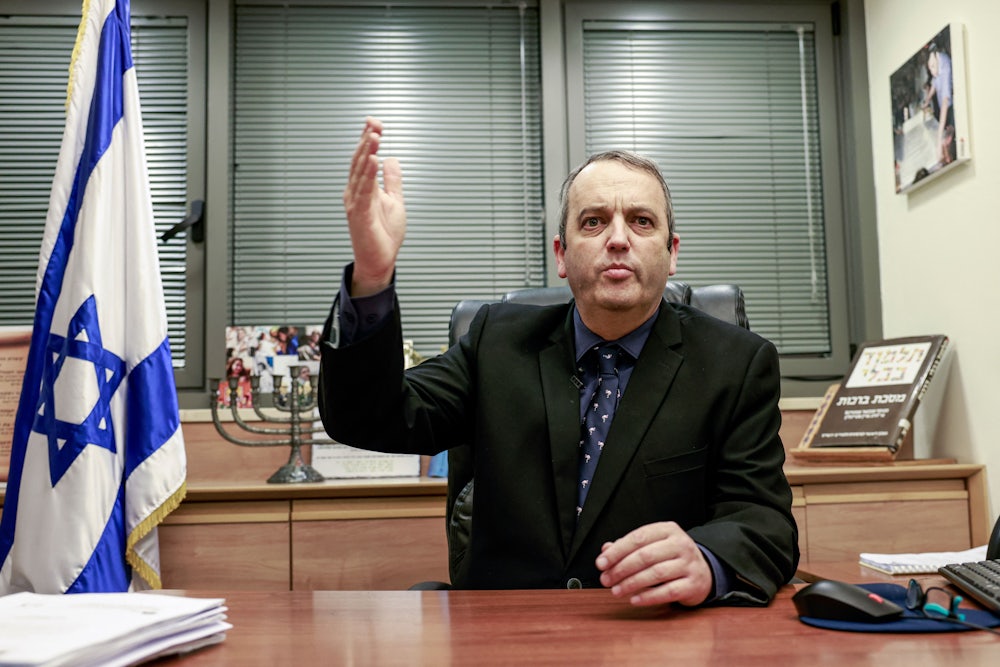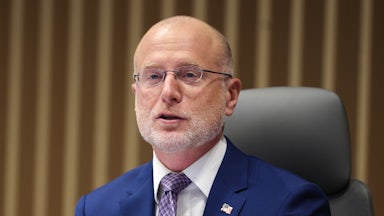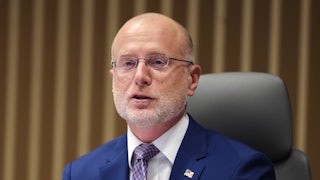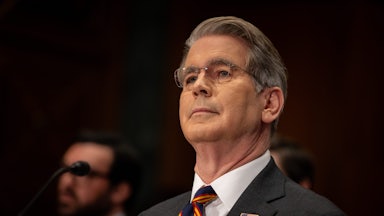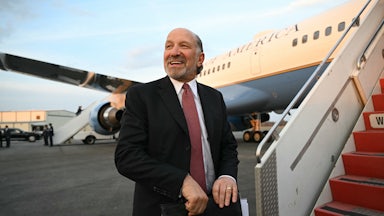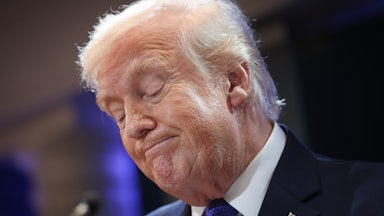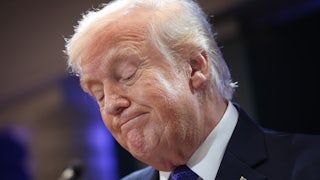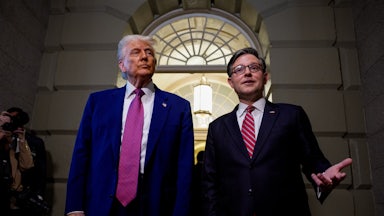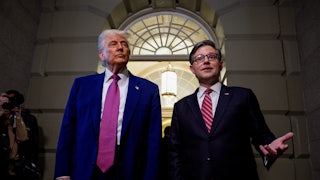This past July, I sat in a
Knesset meeting room as Labor Party Member of Knesset Gilad Kariv resurrected
the two-state caucus, an idea that had been dormant during the Bibi Netanyahu
years—and during the recent interim government headed by Naftali Bennett and
Yair Lapid. While it was a group small enough to fit around a conference table—Knesset
members from the Labor Party, the Arab Joint List, with a sprinkling from Yesh
Atid and Benny Gantz’s National Unity Party—it was a raising of the flag for an
issue that had been off the political map for too long.
To say that a two-state vision is further away than ever before is an understatement at the moment as the war in Gaza rages on, following the October 7 attack by Hamas that killed nearly 1,400 Israelis, including women and children, and the kidnapping of around 250 Israeli citizens and other nationals.
Kariv has been a pivotal force working with civil society against all aspects of the Netanyahu government. Having moved from being a full-time rabbi advocating for religious pluralism and progressive values from outside the political arena, Kariv was elected to the Knesset in 2021 as the first Reform rabbi to serve in a body that is overrepresented by ultra-Orthodox rabbis whose agenda is to promote a theocracy. Kariv immediately rose to head up the critical Constitution Law and Justice Committee in the Bennett-Lapid government. He quickly became the key parliamentary player opposing the judicial coup promoted by his successor on that committee, hard-right politician Simcha Rothman.
Since the war started, he has turned his focus to the once-discarded idea that has gained new currency in recent weeks. “The only way to secure the ability of the two national communities that are sharing the same piece of land to live in peace and prosperity is the two-state solution,” Kariv said.
“The events on October 7 didn’t change our basic belief,” he continued. “I’m not ignoring the fact that the current conflict places many emotional, psychological, and political obstacles on this troubled path toward the implementation of the two-state vision. At the same time, we know that usually after moments of crisis, after wars, after violence, there is also an opportunity to renew the political process. It’s quite difficult during the days of war to say exactly how we are going to reenergize the political process with the Palestinians.”
Kariv does suggest a broad outline for moving forward once the fighting is done. “We should insist on three principles,” he told me. “One is that Hamas cannot control the Gaza Strip. Two, that Israel will not recontrol the lives of two million Palestinians. And third, with the involvement of the international community, the moderate Arab countries, we need to create a new civilian reality in the Gaza Strip that will promote a new political process between Israel and the Palestinians.”
He continued: “We need also to insist on something that is very important to the global community that supports the two-state solution. A victory of Hamas is the end of the vision of the two-state solution. Too many people don’t understand it. Not because of Israel. If Hamas wins this conflict, it will send a very strong message to all Palestinians and to many, many radical forces in the region that there is no reason to have a political dialogue with Israel.”
Meanwhile, the Jewish settlers are fomenting violence against Palestinians in the occupied West Bank, as their representatives in the Netanyahu government endorse their actions. “Right now, the extreme settlers are violating Israeli law, and they are harming the ability of Israel to meet or to face its real enemies, meaning Hamas and Hezbollah,” Kariv said. “My demand is to my government to make sure that Israeli citizens in the occupied territories—the extreme settlers, and it’s important to say that we are talking about a small group among the settlers—but they are violent enough in order to create real danger to Palestinian civilians. We need to be very clear, this is the duty of the Israeli government, the IDF, and the Israeli police: to prevent those extreme settlers from violating Israeli law. As opposition members, we are placing this issue on the Israeli public discourse, together with Israeli civil society. We are tracking the events in those Palestinian communities.”
But Israel’s right wing, emboldened by their role in the Netanyahu government, has other ideas, ranging from military reoccupation of the Gaza Strip to reestablishing Jewish settlements there. “Look, people need to understand the Israeli far right has a very deep interest to destroy any differentiation between Hamas and the Palestinian Authority,” says Kariv. “They are saying it out loud. They want to create a situation where Israelis say we are fighting with the Palestinian Authority in the Occupied Territories. We need to do whatever we can in order to secure the existing differentiation between Hamas and the Palestinian Authority. I have many bad things to say about different aspects of their work and the fact that in so many opportunities they missed the chance to move forward with the political process, but in the end the Palestinian Authority is not Hamas and Hamas is not the Palestinian Authority. Hamas is trying to dissolve this differentiation, and the Israeli far extreme right is trying to do the same.”
There is no doubt that the Netanyahu strategy has led Israel into an abyss. He will leave his post after the war—one way or another—as the least popular prime minister in Israel’s history. Whether leaders like Kariv and the peace camp that he embraces can win the day is an untested proposition. If polls hold, there will be a centrist government formed by current National Unity Party Chairman Benny Gantz, who has never openly embraced a two-state option, even while opposing the current status quo and the extremist settlers in Netanyahu’s government. A unified left can be a partner to a centrist government led by Gantz or someone else (the current official opposition leader is Yair Lapid, who trails Gantz in popularity now) to promote a more robust option.
